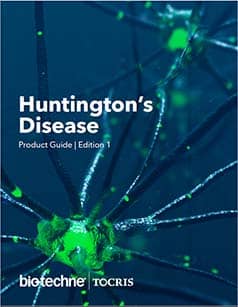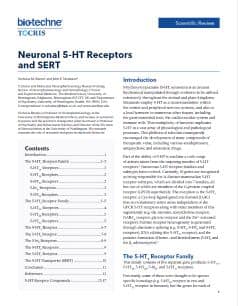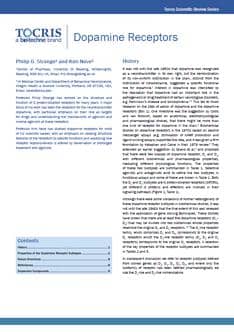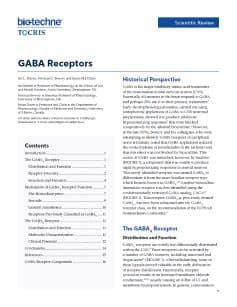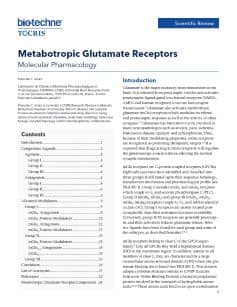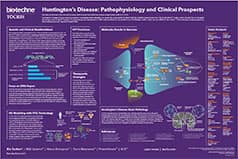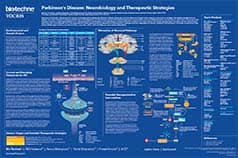Neuroscience Research
Neuroscience is the study of the nervous system - one of the major mammalian systems responsible for sustaining life. The central nervous system (CNS) and peripheral nervous system (PNS) work in concert to coordinate basic functions such as moving and breathing, as well as 'higher order' functions including thought, speech and emotion.
Neurological Disease Product Areas
- Addiction Research
- Alzheimer's Disease Research
- Depression Research
- Epilepsy Research
- Huntington's Disease Research
- Multiple Sclerosis
- Parkinson's Disease Research
- Schizophrenia Research
- Sleep Research
- Stress & Anxiety Research
- Stroke Research
Neuroscience Research Product Areas
Incidence of Neurological Disease
The incidence of degenerative neurological disorders, such as Alzheimer's disease and Parkinson's disease, is increasing worldwide. As these diseases are typically associated with advancing age, this increase is partly due to rising life expectancy. However, environmental factors such as pesticide and insecticide use, are being discussed as possible etiologies for these neurodegenerative diseases.
Classification of Disease
Neurological diseases can be classified according to their etiology. They can be caused by:
- Genetic mutations (e.g. Huntington's disease)
- Development abnormalities (e.g. spina bifida)
- Degeneration (e.g. Alzheimer's disease)
- Diseases of the blood vessels that supply the nervous system (e.g. stroke)
- Trauma
- Malignancy
- Infection (e.g. encephalitis)
At present pharmacological interventions for many neurological diseases, especially the degenerative conditions, are limited and predominantly restricted to alleviation of symptoms. The understanding of the nervous system, and prevention and treatment of neurological disorders represents one of the critical goals of medical research today. Alzheimer's disease, Parkinson's disease, amyotrophic lateral sclerosis and multiple sclerosis are currently the focus of intense neuroscience research.
Resources for Neuroscience Research
Blog post: Cerebral Organoids for Neurodevelopment, Neurodegeneration & Virology Research
When derived from human cells, cerebral organoids enable the investigation of neurophysiology and disease using in vitro and in vivo methods that cannot be used in humans. This blog post describes how cerebral organoids can be used in neurodevelopment, neurodegeneration and virology research.
Read Now!
Literature for Neuroscience Research
Tocris offers the following scientific literature for Neuroscience Research to showcase our products. We invite you to request* or download your copy today!
*Please note that Tocris will only send literature to established scientific business / institute addresses.
Huntington's Disease Research Product Guide
This product guide provides a background to Huntington's disease research and lists around 100 products for the study of:
- Somatic Instability
- Proteolysis and Inclusion Bodies
- Transcriptional Dysregulation
- Mitochondrial Dysfunction
- Nuclear-Cytoplasmic Transport Interference
- Excitotoxicity
- Stem Cells
5-HT Receptors Scientific Review
Written by Nicholas M. Barnes and John F. Neumaier, this review summarizes the various serotonin receptor subtypes and their importance in mediating the role of serotonin in numerous physiological and pharmacological processes. Compounds available from Tocris are listed.
Dopamine Receptors Scientific Review
Written by Phillip Strange and revised by Kim Neve in 2013, this review summarizes the history of the dopamine receptors and provides an overview of individual receptor subtype properties, their distribution and identifies ligands which act at each receptor subtype. Compounds available from Tocris are listed.
GABA Receptors Scientific Review
Written by Ian Martin, Norman Bowery and Susan Dunn, this review provides a history of the GABA receptor, as well as discussing the structure and function of the various subtypes and the clinical potential of receptor modulators; compounds available from Tocris are listed.
Chemogenetics Research Bulletin
Produced by Tocris, the chemogenetics research bulletin provides an introduction to chemogenetic methods to manipulate neuronal activity. It outlines the development of RASSLs, DREADDs and PSAMs, and the use of chemogenetic compounds. DREADD ligands and PSEMs available from Tocris are highlighted.
Addiction Poster
The key feature of drug addiction is the inability to stop using a drug despite clear evidence of harm. This poster describes the brain circuits associated with addiction, and provides an overview of the main classes of addictive drugs and the neurotransmitter systems that they target.
Depression Poster
Major depressive disorder is characterized by depressed mood and a loss of interest and/or pleasure. Updated in 2015 this poster highlights presynaptic and postsynaptic targets for the potential treatment of major depressive disorder, as well as outlining the pharmacology of currently approved antidepressant drugs.
Huntington's Disease Poster
Huntington's disease (HD) is a severe monogenic neurodegenerative disorder, which is characterized by the prevalent loss of GABAergic medium spiny neurons (MSN) in the striatum. This poster summarizes the effects of mutant huntingtin aggregation implicated in the pathology of HD, as well as highlighting the use of iPSCs for HD modeling.
Parkinson's Disease Poster
Parkinson's disease (PD) causes chronic disability and is the second most common neurodegenerative condition. This poster outlines the neurobiology of the disease, as well as highlighting current therapeutic treatments for symptomatic PD, and emerging therapeutic strategies to delay PD onset and progression.


